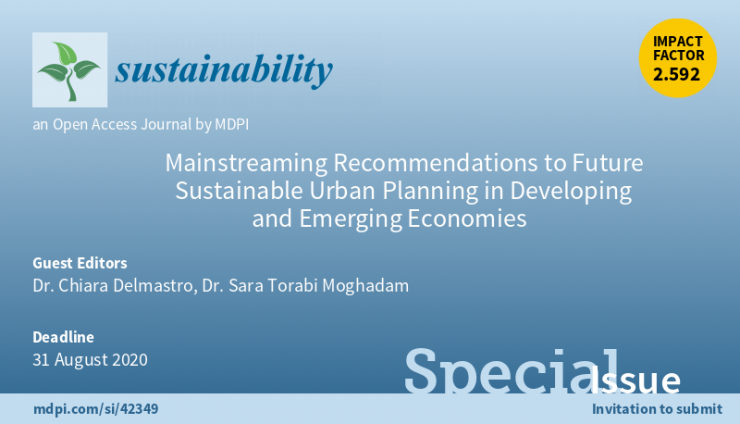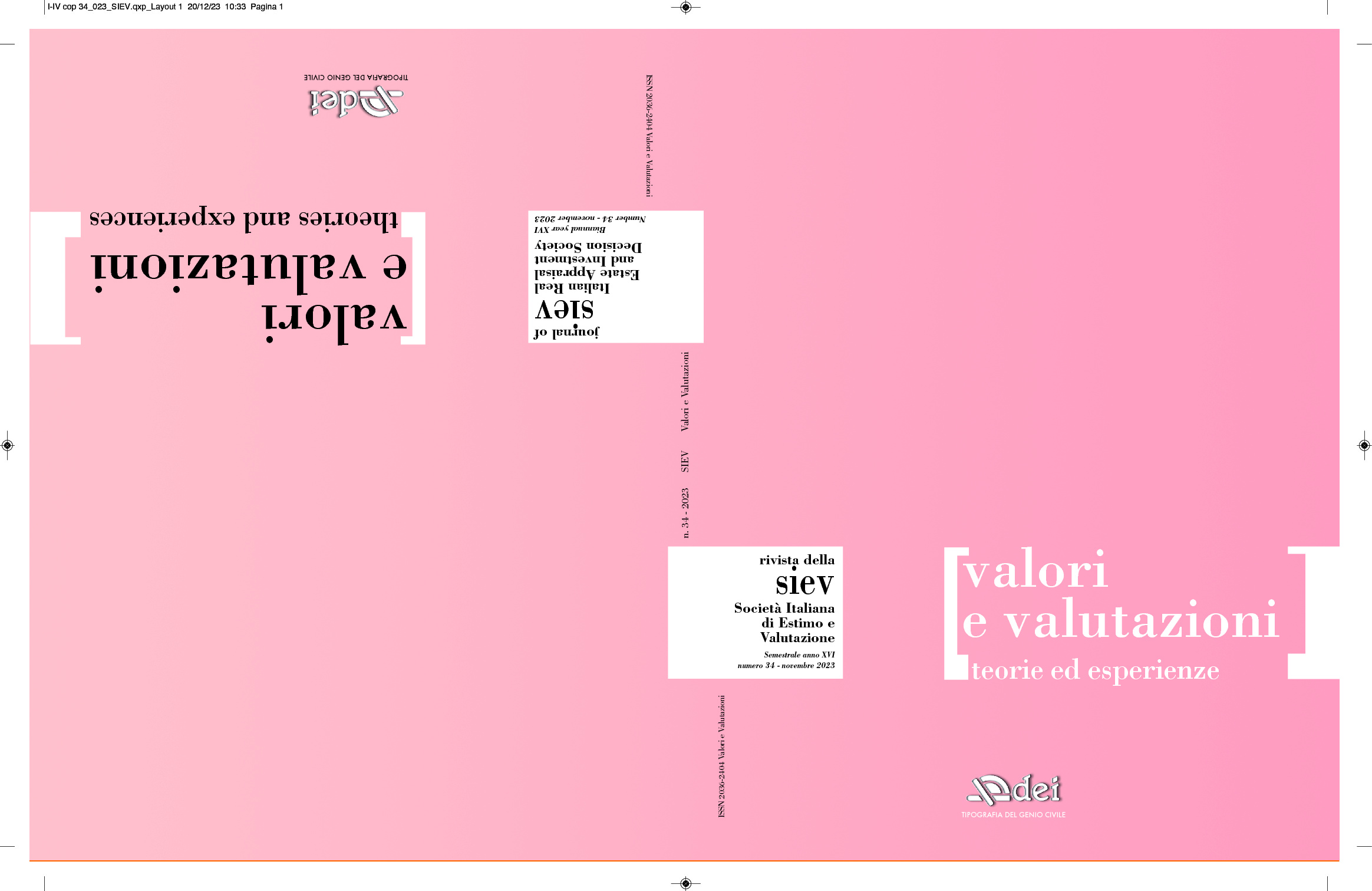A special issue of Sustainability (ISSN 2071-1050). This special issue belongs to the section “Sustainable Urban and Rural Development“.
Deadline for manuscript submissions: 31 August 2020.
Dear Colleagues,
We are pleased to announce a new Special Issue that aims to mainstream recommendations for future sustainable urban planning in developing and emerging economies.
Cities play a central role in facing the big challenges of our time, such as climate change, resilience, and the need for more livable urban spaces. Urban areas occupy less than 10% of the Earth’s surface and are responsible for more than 70% of energy-related GHG emissions. According to UN projections and driven by developing and emerging economies, the global population will reach 8.5 billion by 2030, with the urbanization rate expected to be close to 60%. Enormous challenges are caused by rapid urbanization, including air pollution, inadequate basic services and infrastructure, unplanned urban sprawl, energy security, and open public spaces, which also make cities more vulnerable to disasters. With the areas occupied by cities growing faster than their populations, there are profound repercussions for sustainability.
In particular, over the last few decades, many developing and emerging economies have experienced rapid urbanization and rising living standards, bringing associated dilemmas and threats to sustainability that may not be taken into account in future sustainable planning scenarios. In this context, typically, poverty allevation and fast economic development take precedence over environmental aspects.
Indeed, better urban planning and management are needed to limit the impact of this unprecedented growth on the livability of cities. In 2015, the UN adopted the Sustainable Development Agenda 2030, and among its 17 Sustainable Development Goals (SDGs), goal 11 is fully dedicated to cities and human settlements, with the aim of making them inclusive, safe, resilient, and sustainable.
Several opportunities are available to learn from current practices and to move towards the objectives of the Agenda. In this regard, the aim of this Special Issue is to mainstream interdisciplinary recommendations from the best urban planning practices that could foster sustainable urban development in developing and emerging economies, avoiding the lock-in of inadequate infrastructures and settlements. By highlighting these recommendations, this Special Issue will shine a light on the significance of proper sustainable urban planning to inform and influence policy and decision making in rapidly evolving cities.
Hence, for this Special Issue, we invite interdisciplinary experts focusing on planning at the urban scale, including but not limited to, buildings, mobility, infrastructures, and digitalization. Articles that deliver techno-economic, social, and environmental recommendations towards more sustainable and liveable cities are welcome, with a special focus on the key existing challenges and opportunities.
This Special Issue focuses on, but is not limited to, the following topics:
- Accessibility: access for all to adequate, safe, and affordable basic services and transport systems with special attention to the needs of those in vulnerable situations; capacity enhancement for participatory approaches towards integrated settlements.
- Energy transition: integrated energy system analyses; clean energy sources, resources, and opportunities; distributed energy generation, energy efficiency, and green communities; innovations to improve air quality; circular economy.
- Data management and smart cities: smart cities and digitalization challenges; opportunities and best practices; big data; machine learning and artificial intelligence applications; case studies; data protocol and data collection.
- Assessment and evaluation techniques: financial analysis, costs–benefits analysis; multi-criteria analysis (MCA); spatial decision support systems (MC-SDSS); operations research; decision processes; methodological aspects in the field of the science of valuation; social qualitative methods.
- Policy framework: adopting and implementing integrated policies and plans towards inclusion, resource efficiency, mitigation, and adaptation to climate change; financial, technical, and environmental regulatory support.
Dr. Chiara Delmastro
Dr. Sara Torabi Moghadam
Guest Editors













Add comment